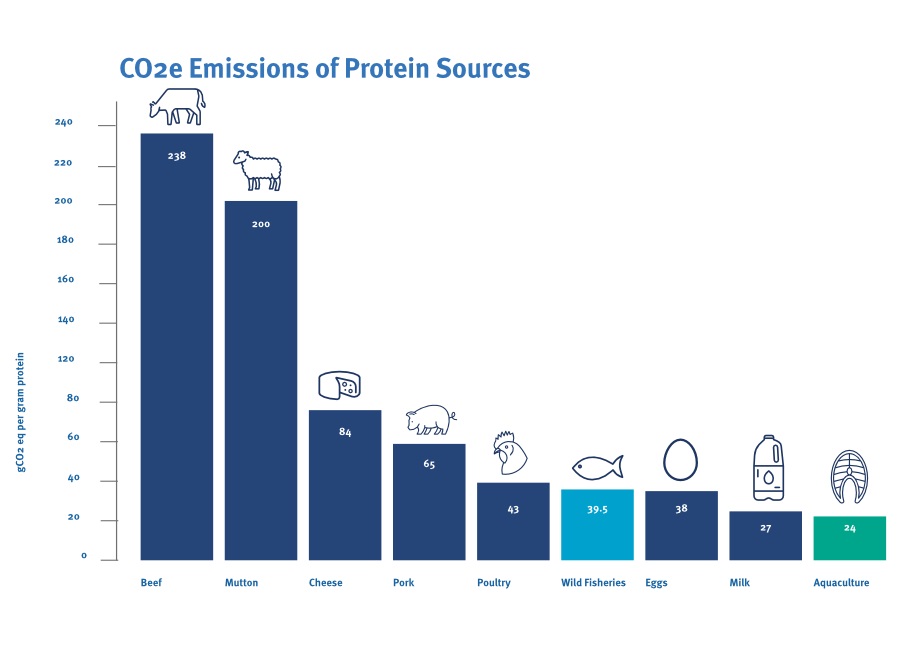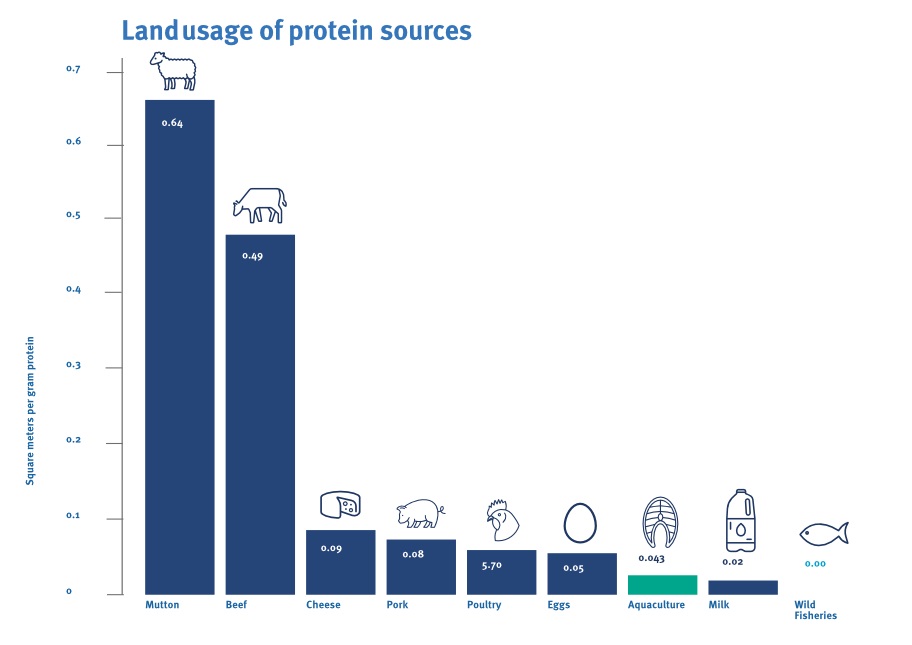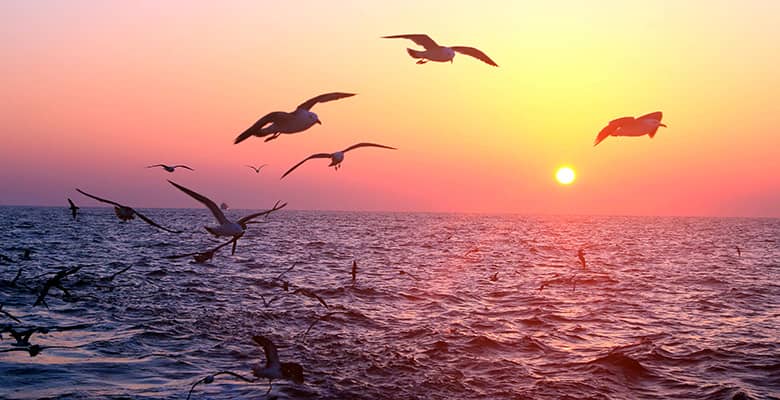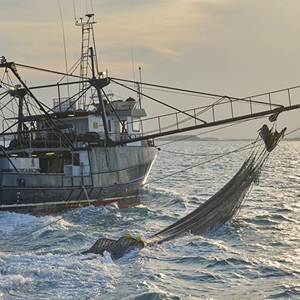The Blue Transformation is a United Nations initiative to realise the potential of the oceans in supporting global food security.
The world’s population will reach an estimated 10 billion by 2050, according to the United Nations. We know that many people already suffer from a shortage of nutritious foods and that the production of food can have negative effects on our planet. In the face of these and related challenges, there is increasing recognition that our oceans should be part of the solution.
Food security
One of the key effects of an expanding population is a decrease in food security; access to enough healthy food. An important component of food security is sustainability – we can’t just feed everyone until resources run out.
3.2 billion
get 20% of their animal protein intake from fish
33 million
directly employed in wild capture fishing
61.8 million
estimated total of workers in fisheries and aquaculture
How can our oceans support food security?
At its 2021 Food Systems Summit, the United Nations recognised the potential for fishing and aquaculture in helping to nourish our population while protecting nature, stating, “the ocean covers 70% of our planet, but currently provides only 5% of our food.”
The UN Food and Agriculture Organization’s Blue Transformation Strategy aims to help meet the UN Sustainable Development Goals (SDGs) – to end poverty, protect the planet and ensure prosperity for all and focuses on the sustainable expansion of “blue food” production.
Also in 2021, more than 100 scientists collaborated on the Blue Food Assessment to gain better understanding of the role of these foods in feeding the world. It found that sustainable management of the world’s wild-capture fisheries is imperative in feeding a growing global population.
“We're not going to feed ourselves only with fish, but if we do not use fish it’s going to become much more difficult to get out of these trends [of malnutrition].”
FAO
What does "blue food" mean?
Blue foods are those we get from water: fish, seafood and seaweed (algae). This means those we harvest from oceans, rivers and lakes as well as those that are farmed (aquaculture).
2,200+
wild species fished
600
aquatic species farmed
800 million
derive livelihoods from blue foods
What are the benefits of blue foods?
The FAO believes the Blue Transformation initiative is a "win-win", with multiple benefits for us and the planet:
Nutrition
Some 3.2 billion people get at least 20% of their animal protein intake from fish. In some countries, small pelagic fish like sardines provide the most affordable form of protein.
The foods we take from the water possess a diverse range of important nutrients and could help alleviate malnutrition. These foods make up a diverse group, with over 2,200 wild caught species and 600 farmed.
Livelihoods
Wild capture fishing alone employs an estimated 33 million people and the economies of many coastal communities and island countries depend on fishing. Blue foods are among the world's most traded commodities, providing livelihoods for an estimated 800 million people in total.
The environment
Research has found that wild capture fishing is less harmful than land-based animal farming. Fishery production produces much lower CO2 emissions than most meat production and uses no land and virtually no fresh water.


“The Blue Transformation initiative is an effort to convince everyone that there are very clear steps one needs to take to make sure that we move in the direction of ending hunger and poverty - from a fisheries and aquaculture perspective.”
The MSC and the blue transformation
The MSC welcomes the prospect of a blue transformation of our food systems. We need a global overhaul in both thinking and action around food production and distribution. Governments and other policymakers need to ensure that food from the ocean is central to national and international food strategies, while also putting in place support for fishers and businesses that champion sustainable production.
The benefits could be significant. The UN’s second World Ocean Assessment estimates that, with the right management, 98% of currently overfished stocks could return to healthy levels by 2050.
Fisheries that are managed sustainably are more productive in the long-term and those in the MSC program have contributed improvements benefitting habitats and protected marine species, while maintaining healthy stocks of the fish they catch.





